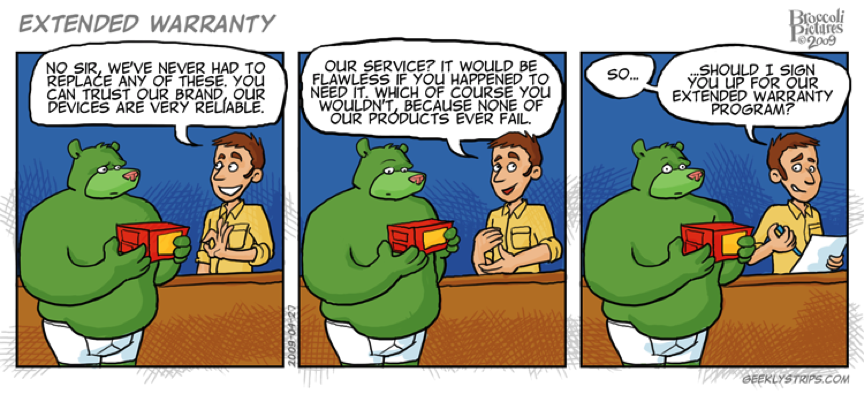
You paid HOW MUCH???!!!
March 20, 2017
You’re Out of Your Mind
May 22, 2017“It ain’t what you don’t know that gets you into trouble. It’s what you know for sure that just ain’t so. “ – Mark Twain
I love Mark Twain quotes. He cuts through seemingly complex and confusing matters with such precision and gets to the heart of the issue. The above quote is another great example.
Mark Twain’s quote is alluding to a tendency to believe that what we think is fact when unfortunately it’s just opinion, and as an opinion it may not be correct. Further, that when we act based on a belief something is fact and it turns out to not only be opinion but wrong, this is when things can often go spectacularly wrong.
Expert Opinion
A couple of months ago we posted an article about the difficultly for a financial planner to also be an investment expert, with time constraints and an absence of appropriate training and experience the barriers. This time we look at “experts” more generally, particularly those that deal with the future, and also our own thinking and how this impacts on our financial decision making.
2016 was a bad year for the experts. It’s widely accepted that those supposedly in the know got it wrong on Brexit and again on the US election, despite an almost unbearable (OK, it was unbearable) level of attention and analysis. So, what was the problem?
Quite simply, it’s that we are dealing with the future and because it’s the future it hasn’t happened yet, so we can’t be sure exactly what will happen. We need to stop thinking we “know” what will happen and acknowledge it is only what we “think” will happen. It doesn’t matter if you are an expert or not.
We Are Not Bricks
In the physical world the laws of physics provide us a fairly predictable indicator of what will happen if you place a brick on a stable flat surface and as a result we are pretty good at constructing bridges and buildings of immense size and complexity. When it comes to the social world however we don’t have such well understood laws of how the human mind works and the behavior that will play out in the complex world we live in.
You and I have different beliefs, different life experiences and different social and cultural environments. We think differently and as a result we will often behave differently. We are all unique. We are not bricks.
It’s not natural. It’s Man Made.
Whenever we are making decisions we are dealing with the future. The decisions we make today do not impact our past, only the future, be it one minute, one year or ten years from now. Further, money, investments and financial arrangements are not a natural occurrence. They are man-made concepts (some may say fictions) and consequently they are impacted by human behavior and cannot be considered irrefutable laws of nature, such as gravity.
We take it as fact that the amount in our bank account means we actually have that amount of currency. But in reality it is just an opinion that when we go to access the money the bank will return this measure of currency to us. What if the bank has loaned too much to the wrong people and it doesn’t have the money to return.
If you think Government guarantees make it fact, then consider the default on debts by Russia and numerous central and South American governments. Our Government may be more stable, but it doesn’t mean it can’t happen here too.
Property prices don’t always go up, even the best located properties. Nor do the shares of the best and most profitable companies always rise. The value of assets move in cycles, that are different each time, because it is the human mind that is continually determining their prices and we are subject to influence, emotion and bias. When we collectively change our opinion as to the value of an asset the price will change also.
It is not well known in the broad community that share broker analyst forecasts for the future materially overstate actual earnings by substantial amounts with surprising regularity, which in the end leads to repeated earnings downgrades and investor disappointment. Similarly, you won’t see many real estate agents forecasting a market downturn. Why does it keep happening? Analysts are people and they suffer the shortcomings we all do. In this case overconfidence. It could also be that the “expert” has a vested interest.
Concentration v. Diversification
So what can you do about it?
Be really careful of any financial strategy or approach to investment that is centred on a narrow belief that is treated as fact, but is really only opinion, and leads to a concentrated exposure.
When it comes to investing, concentration can provide spectacularly good and bad results. If you’d plowed all your capital into the Sydney and Melbourne property markets over the last 20 years and borrowed as much as you could to do the same, there is a strong chance it would have been incredibly well rewarded. Similarly, if you had plowed all your capital into equity markets following the big declines of 2000-2 and 2008-9 you would have been well rewarded. But what if the following years didn’t play out so favourably? What if you didn’t get out before the cycle turned for the worse? What then?
The concept of diversification is widely espoused as an appropriate approach to investment portfolio construction. At the heart of diversification is an acknowledgement we don’t know the future and our opinions on the future may be wrong.
Diversification will not get you the best return. That is not the purpose of it. Diversification is to prevent a financial disaster if what you think will happen, doesn’t happen. It’s about risk management.
Anyway, that’s my opinion. Make sure you don’t confuse it with fact.
Disclaimer
This advice is of a general nature only and may not be relevant to your particular circumstances. The circumstances of each person are different and you should seek advice from a financial planner who can consider if any strategies or products mentioned are right for you.

